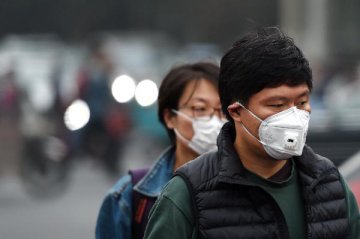People are reminded of the deadly Severe Acute Respiratory Syndrome (SARS) in 2003. But China is not what it was 17 years ago. The country has developed better disease combating mechanisms in terms of emergency response and transparency. The public has also become more composed and sober in facing the epidemic.
To counter the novel coronavirus (2019-nCoV), the country is sticking to the strategy of early discovery, diagnosis, treatment and quarantine, which remains the most effective method to bring the outbreak under control.
It took just two weeks to identify the novel coronavirus. Well-rounded monitoring and quarantine systems have been adopted. Medical staff are fighting at the forefront in the prevention and control of the epidemic. Patients are receiving timely testing and treatment.
Experts of the Chinese Center for Disease Control and Prevention said the outbreak of the new coronavirus can be reversed if measures are taken now.
Although unnecessary panic should be avoided, China cannot afford to take the epidemic lightly. More frequent population movement has become a challenge to infectious disease control, especially during the Spring Festival travel rush which sees hundreds of millions of people traveling at home and abroad.
The newly reported cases, confirmed or suspected, serve as a reminder that the battle against infections is far from over.
The government keeps high alert as viruses are notorious for their unpredictable behavior. Health authorities have classified pneumonia caused by the novel coronavirus as a Class B infectious disease and are managing it as Class A infectious disease. The city of Wuhan in central China, where the epidemic was first discovered, is taking strict measures to curb the spread of the virus in the region as well as its transmission to other places.
The government is continuously updating information. For instance, the expert team of China's National Health Commission confirmed people-to-people transmission of the 2019-nCoV and infections among medical staff quickly and announced the confirmation quickly. Transparency brings confidence to the public, not panic.
Media are also stepping up efforts to inform the public of relevant policies and prevention methods. Infection control is everyone's business.
China has deepened international cooperation. Health authorities are communicating and coordinating with the World Health Organization and related countries, as well as Hong Kong, Macao and Taiwan, to join efforts to curb the spread of the virus. Such cooperation has been seen in the successful treatment of A/H1N1 swine flu in 2009 and H7N9 avian flu in 2013.
With high alert, more experience, close cooperation among countries and higher technology than ever in hand, China has confidence in curbing the infectious threat to humanity.




















Latest comments